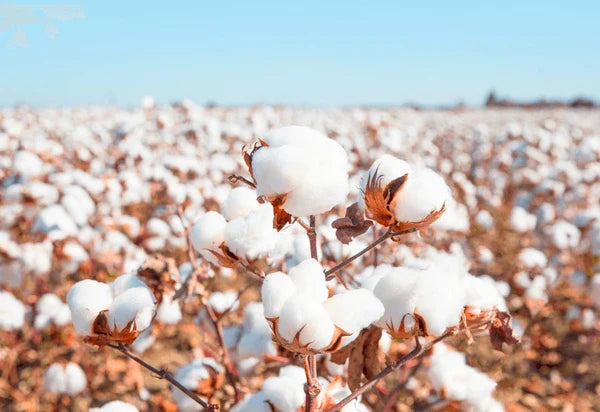
Why Organic Cotton Matters for Your Baby’s Skin
Share
The difference between conventional and organic cotton in baby wear
As parents, we’re constantly making choices to protect our baby’s health—what they eat, how they sleep, and yes, even what they wear. But did you know that the type of cotton used in baby clothing can make a big difference to your baby’s skin and overall well-being?
Let’s take a closer look at why organic cotton is the preferred choice for babies, especially compared to conventional cotton.
Baby Skin: Sensitive from the Start
A baby’s skin is about 30% thinner than an adult’s, making it more absorbent and vulnerable to external irritants. Their immune systems are still developing, which means they can't detoxify harmful substances as effectively as we can. That’s why what touches their skin—especially for long hours—matters more than ever.
What’s the Difference Between Organic and Conventional Cotton?
|
Feature |
Conventional Cotton |
Organic Cotton |
|
Farming methods |
Grown using synthetic pesticides, herbicides, and fertilizers |
Grown naturally without harmful chemicals |
|
GMO seeds |
Often genetically modified |
Always non-GMO |
|
Water usage |
Extremely high; can deplete local water sources |
Uses less water through more sustainable farming |
|
Chemical processing |
May involve chlorine bleach, toxic dyes, and heavy metals |
Processed using non-toxic, low-impact dyes and finishes |
|
Residue on fabric
|
May leave behind residues that can irritate skin |
Gentle and free from harsh residues |
|
Certification |
Often uncertified |
Certified by standards like GOTS or OEKO-TEX® |
Why Organic Cotton Is Better for Babies
1. No Harsh Chemicals
Organic cotton is free from pesticides, formaldehyde, flame retardants, and other substances commonly used in conventional textile production. These chemicals can linger on clothing and may cause skin irritation, rashes, or allergic reactions.
2. Breathable & Gentle
Organic cotton is naturally soft, breathable, and hypoallergenic— making it ideal for keeping your baby cool and comfortable, especially during sleep or playtime.
3. Less Risk of Irritation
Since organic cotton is not chemically treated, it’s much less likely to trigger conditions like eczema or contact dermatitis—especially important for babies with already sensitive or reactive skin.
4. Safe Enough to Chew On
Let’s face it—babies chew everything, including their clothes. Organic cotton offers peace of mind knowing that what ends up in their mouth is clean and chemical-free.
A Choice That’s Better for the Planet, Too
Choosing organic isn’t just better for your baby—it’s also better for farmers, communities, and the planet. Organic farming supports healthy soil, clean water, and biodiversity, while reducing pollution and carbon emissions. Every organic cotton garment is a small step toward a healthier world for the next generation.
Our Commitment to Clean Baby wear
At URTHLY ON, we’re passionate about creating baby essentials that are as safe and pure as your little one. All of our products are made with certified organic cotton, carefully crafted to be gentle on skin and kind to the planet. Because your baby deserves nothing less.
Final Thoughts
From day one, your baby’s skin deserves the softest, safest materials. Choosing organic cotton is a simple, powerful way to protect their health while supporting a more sustainable future.
Ready to make the switch?
Explore our collection designed with love, transparency, and intention.